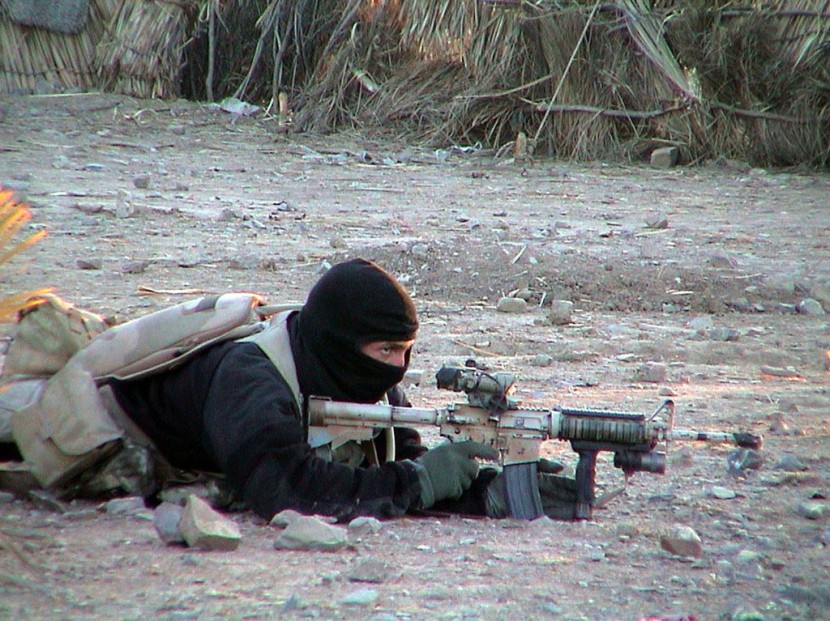
Testing by the Department of Defense found that eight of at least 12 Navy SEALs who died by suicide over the past decade had all suffered brain damage that was likely caused by repeatedly firing heavy weapons in training, according to a new report.
But the Navy was never informed about the disturbing pattern until it was uncovered by a journalist who shared the information, the New York Times said Sunday.
The report blamed the situation on privacy guidelines at the state-of-the-art DOD laboratory that conducted the research, as well as poor communication in the military's hierarchy.
A Navy officer close to the SEALs' leadership reportedly expressed shock and frustration upon learning about the bureaucratic snafu.
"That's the problem," the unidentified officer told the Times. "We are trying to understand this issue, but so often the information never reaches us."
The testing was the result of a grass-roots effort by grieving relatives of the SEALs who died by suicide and whose brains were delivered to the DOD lab in Maryland, the Times said.
Researchers found evidence of damage seen only in people who were repeatedly exposed to blast waves, suggesting that the SEALs were injured by the training that turned them into some of the U.S. military's most elite fighters.
The SEALs whose brains were analyzed included David Metcalf, who died by suicide in his North Carolina garage in 2019 after nearly 20 years in the Navy.
Metcalf, who shot himself in the heart so his brain could be studied, died next to a stack of books about brain injury.
He also left a note that in part said, "Gaps in memory, failing recognition, mood swings, headaches, impulsiveness, fatigue, anxiety, and paranoia were not who I was, but have become who I am."
"Each is worsening," Metcalf added.
In a prepared statement, Rear Adm. Keith Davids, the commander of Navy Special Warfare, which includes the SEALs, said the Navy was trying to stem brain injuries "by limiting blast exposure."
Davids also said the Navy was "actively participating in medical research designed to enhance understanding in this critical field."
"We have a moral obligation to protect the cognitive health and combat effectiveness of our teammates," he said.
If you or someone you know needs help, the national suicide and crisis lifeline in the U.S. is available by calling or texting 988. There is also an online chat at 988lifeline.org.
© 2025 HNGN, All rights reserved. Do not reproduce without permission.








